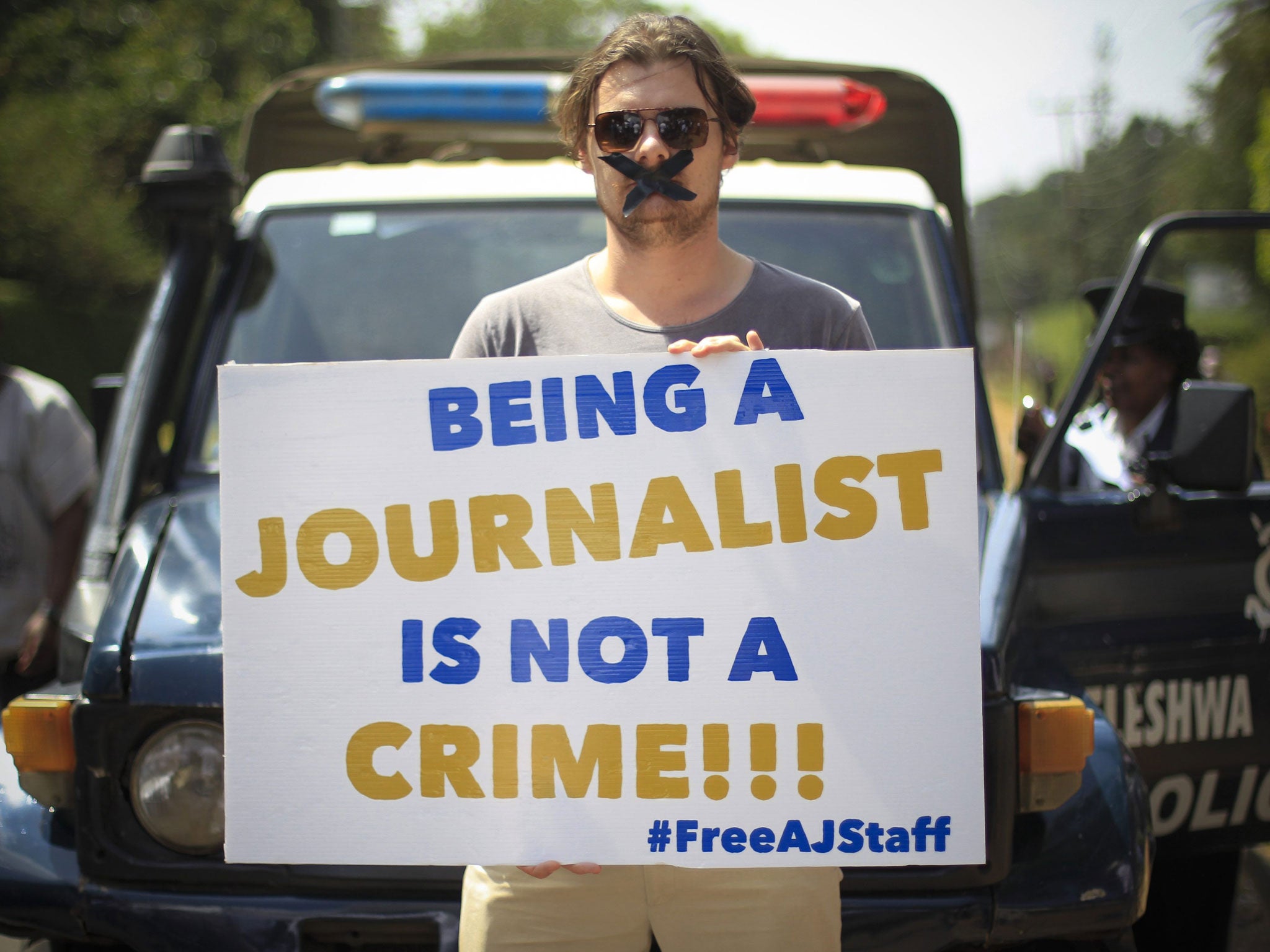Voices in Danger: The character of war reporting is constantly changing
Governments around the world have been responding brutally to the rise of citizen journalism

The world is witnessing militant Iraqi groups kidnap and execute journalists like never before. Syrian state, non-state and now Islamic State (Isis) actors also target journalists. This trend of systematically targeting members of the media has widened to include citizen journalists since 2011.
Citizen journalism has manifested out of the conflict in the Middle East and the era of information warfare. Many of these citizen journalists are people made up of conflict affected, displaced individuals who articulate their stories via social media platforms. As the Arab Uprisings continue, citizen journalists harness digital media technology to reach a global audience.
According to Abdalla Salmi, former BBC Monitoring Arabic Media Analyst, “Citizen journalism reflects the press situation in countries. The more closed a nation is, the more citizen journalists there are.”
Salmi pointed out further that, programmes such as BBC Arabic’s “I Am the Witness” and France 24’s “Observer” and Al-Jazeera’s “The Stream” are a few mainstream examples of the digital-traditional media ecosystem that has manifested between traditional and citizen journalists.
The surveillance and targeting of citizen journalists has risen steadily. Bloggers are routinely arrested, sometimes tortured for false confessions or die in detention. Civil society groups and human rights NGOs have reported that Iranian authorities have installed draconian internet café laws to monitor internet café users; giving the authorities full power to target and arrest both internet café owners and users.
During the uprising in Libya in 2011, state television reported very little information on the conflict. Citizen journalism, however, showed a very different picture. Social media provided an anonymous and instant reporting mechanism through which to relay events unfolding in real-time. BBC Monitoring found that citizen journalists in Libya were significant in providing information that helped topple the Gaddafi regime.
Recent trends in Libya show that different actors in power are now utilising and allowing mainstream media to put forward diverse viewpoints. Due to a better free flow of independent reporting, the number of citizen journalists within Libya has lessened.
Mainstream war reporting is transforming with the changing character of warfare. The targeting of the press is a trend that has steadily increased since the Iraq War. To date, the highest number of journalist casualties was during the Iraq War in 2007, and second highest in 2006.
Would the world have known, in real-time, the detailed atrocities that have taken place throughout the Arab Uprisings, without the harnessing of digital media technology and the rise of citizen journalism? Most likely, not. The question that now remains is how such an ever-changing character will continue to reinvent itself.
Join our commenting forum
Join thought-provoking conversations, follow other Independent readers and see their replies
Comments
Bookmark popover
Removed from bookmarks